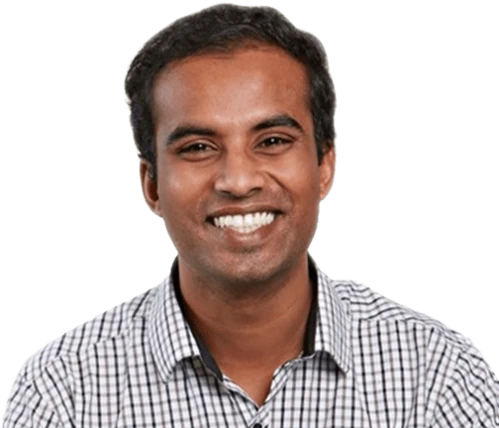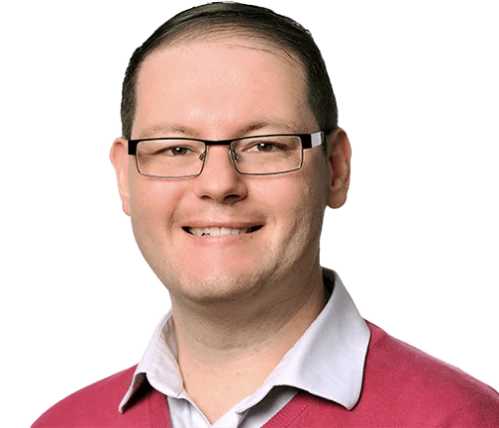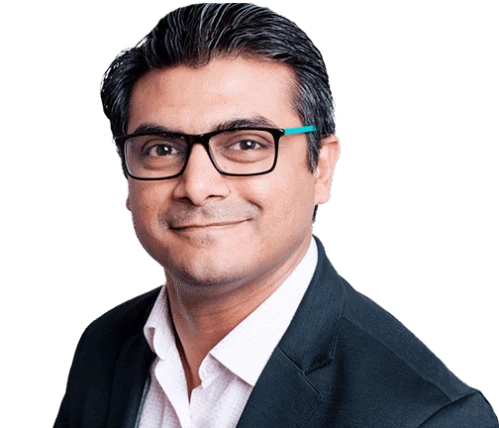podcast
In this episode of NousCast we head to Plymouth in England, where a group of local organisations had an agenda for cultural revitalisation. Along the way we’ll hear about the economic and social challenges the region faced, the action challenge projects driven by creative sector leaders, the new connections that are leaving a big legacy – and how all this was achieved in the midst of COVID restrictions.
In this episode we speak to Hannah Wood, the Creative Director at Story Juice in Plymouth, as well as Nous Principal Zac Ashkanasy and Nous Consultant Minto Felix.
About NousCast
The NousCast podcast brings you fresh thinking on some of the biggest challenges facing organisations today. In each episode of our fourth series, NousCast will feature interviews with Nous clients and consultants to a cutting-edge project, from the challenge to the approach, outcomes and lessons learnt.
Ari Sharp: Hello, and welcome to NousCast brought to you by Nous Group, an international management consultancy. I’m your host, Ari sharp, and in this series of NousCast, we’re looking at some of the projects we’ve undertaken at Nous over the past few years. You’ll get to meet the clients we’ve worked with, and the Nous consultants who supported them to meet some of their biggest challenges. Today we’re heading to Plymouth in England where a group of local organisations had an agenda for cultural revitalization. Along the way, we’ll hear about the economic and social challenges the region faced, the action challenge projects driven by creative sector leaders, the new connections that are leaving a big legacy, and how all this was achieved in the midst of COVID restrictions. Joining me from Plymouth is Hannah Wood, the Creative Director at Story Juice, an interactive and immersive storytelling studio creating playful narrative experiences that offer new perspectives, and empower people to make change in the world. And on the line from London a Nous consultants, Zac Ashkanasy and Minto Felix. Zac, a Nous principal, has more than two decades of business and consulting experience with expertise in business strategy, organizational design, public policy, and change management and Minto a Nous consultant is a trusted policy and strategy advisor who values pragmatic problem solving, and has led multi-stakeholder projects from conception to implementation. Let’s get into it.
Hannah, if I can start with you, can you tell us a bit about Plymouth as a place to work and to live, what was it like for someone with a passion for culture and creativity?
Hannah Wood: Yeah, sure. I mean, the first thing to say about Plymouth is that it’s a beautiful waterfront city. So that means that you can go, and you can see the sea, you can see the horizon line, and to me, that communicates hope and opportunity, and also it connects us to the rest of the world. It’s also a really emerging creative sector, and that means is that it’s not established in the way that it is in other cities, so you can actually be a part of it. It feels a lot more accessible, it also has a kind of DIY ground up creative culture.
I was part of a project in 2013 that was a pioneering immersive experience here, created here because we could do it from the ground up in a DIY way. Unfortunately, at that time we didn’t really have the creative infrastructure to sustain it, and that meant that all of those who were involved in that had to go elsewhere to do their work, and build their businesses. So I think, and certainly for me, I had to go outside to build Story Juice in its kind of specialism in immersive projects, but now I think that’s changing, and there’s a more sustainable creative ecosystem here, there are more opportunities, there’s a broader network, there’s a higher concentration of creatives, there’s also been a lot of capsule investment in venues to show work. So now it feels like a time that if we did something like that again, we would be able to sustain it here.
Ari Sharp: And Zac, some of the leading organizations in Plymouth saw an opportunity for revitalization, who was in that consortium, and what was the common challenge, and then what did they do about it?
Zac Ashkanasy: It was quite a consortium led by the University of Plymouth as part of their civic agenda, but it was then supported by Plymouth City Council, Destination Plymouth, Real Ideas, Plymouth College of Art, together with Creative England, the Arts Council of England, together with Crowdfunder.co.uk. In effect, what they were trying to do is sort of collide, if you like, in a positive sense. The role that the creative sector can play with other parts of industry, and Plymouth as Hannah noted does have this sort of creative infrastructure that’s emerging, and there’s a feeling of sense that could be better leveraged as it emerges with existing infrastructure, whether it’s the health system or in the case of Plymouth, the defense or manufacturing sort of sectors that exists there. So it was that consortium, and then an idea about how the creative sector could play a more prominent role in the way it works with helping out other industries with their sort of joint pursuit of addressable challenges within the city of Plymouth.
Ari Sharp: So Minto, was at this point that Nous got involved, what did now spring to the table, and how did it work with the Plymouth Consortium that Zac talked about?
Minto Felix: I think in two distinct ways, Ari, one is we were tasked with the challenge of identifying the capabilities that were required from leaders to do the collision that beaks of. So we worked with the consortium other stakeholders to identify what were the capabilities that were important to the region, to these sectors, and to the stakeholders that were also engaged. And then secondly, we were of course charged with developing the learning experience, a compelling set of activities, and immersive sessions, and reflective journals, the whole works to support leaders in the region to develop in these capabilities.
Ari Sharp: Now Hannah, you applied to be a part of iLead, just what is iLead, and what motivated you to apply? And then once you were involved, what were some of the highlights?
Hannah Wood: iLead, for me, is about developing a new generation of leaders in the city, and I applied for it because of this problem of not being able to really work in the city in my industry, and I really wanted to find a new network of people to work with, potential collaborators. I also was driven by, “I want to understand leadership styles and techniques,” which I certainly did as part of the process, I understood my own, and also had to shift, and move styles depending on the situation, and also recognize them in others, and I think that that’s really important when you are looking for the kind of mutual wins.
I learned in the process that leading doesn’t really have a blueprint, I mean, I suppose that’s the kind of points of it. And then as part of the process, we had these grand challenge projects, which sounds a bit scary as a title, but they were really kind of action research projects. We pitched ideas to the group of what we thought that the city needed, and from my perspective, what the city needed were a huge gap in the kind of market really was this place of an R&D lab, a collaborative space to bring those people together, those networks together, kind of what we’re all talking about here, this idea of colliding things, and digging out buried talent, and skills, and experience, and connecting them. So, yes, we got to develop this concept to the Super People Lab as part of the process.
Ari Sharp: Now Zac, projects like these are not always smooth sailing, can you tell us about the choppy waters that you encountered along the way and how you navigated through them?
Zac Ashkanasy: Yes, the biggest challenge actually was COVID. It was a program initially designed to be a face to face program, and again, yes, you can network remotely, but there is something about that sort of face to face element that is challenging in the virtual world. So the first challenge was the first half of the program was done remotely. We had to deliver the training component of the program in two hour bite size chunks, which wasn’t really the original plan. Originally it was in a more traditional sense, we could have full immersive days where everyone was together, really getting to know one another, working together, and really going a bit more deeply into various leadership topics. Interesting enough, when we started to go face to face from the summer, it really did start to change. In fact, there was a dinner that we had, that was a real tipping point, I thought. It was the first time we’d been face to face, and from that moment on, you could really tell that the gears changed, if you like, in the program.
Ari Sharp: So all up the program ran for eight months. Minto, can you tell us what were the outcomes of the end of the at time?
Minto Felix: Yeah, it’s a complex question, I think we can approach it firstly at the personal level. For individuals in the group, certainly my observation was that there were capabilities that were developed and say giving and receiving feedback or communication or project management, but for me, I think, when I take a step back and look at the group, there was an enormous, I think, growth of resilience and sort of tenacity, and that’s tenacity in sort of being able to deliver, and work through the challenges faced by the grand challenge projects, as well as just being able to commit to a program while you’re trying to do so much else in life, and in this time of COVID that Zac spoke to. So I think those were really kind of the big outcomes at a personal level that I observed.
As a cohort, I think in terms of the projects, the nature of individual projects, the pace at which each project moved meant that we had mixed outcomes. Some ideas now look they are ready to go, and could be worthy of seed funding, and with the right kind of networks in the community could really become something that is of great value to the region while others realize that for whatever reason, they weren’t able to actualise their own hopes for the projects or they would’ve gone about in a different way, and that’s okay. We were able to facilitate in such a way where people were able to take learnings from wherever they were at, but I think the last sort of outcome is all the Plymouth region, and I think what the region has now is a network of these diverse, and committed leaders from various sectors, and various disciplines who stand very ready to tackle some of the challenges that face the region, and the city, and that’s really exciting.
Ari Sharp: Now Hannah, you were involved in one of the action research projects, Super People Lab. Can you tell us what was it all about, and how’s it progressing?
Hannah Wood: So Super People Lab is this working title, and it is the idea of a new collaborative network and R&D network that breaks people out of their silos in the city to work together, and to really find the kind of unusual suspects to solve some of the problems that are faced in the city, and that can potentially be… Those solutions can be exported then. So it’s a place where we can build a kind of track record, and nurture the creative ecosystem, and have more what I call cultural gardeners in the city, so that people who are kind of the producers that aren’t connected to particular institution or organization or a particular project that they can kind of oversee, and they can bring people together to do this colliding, and it takes both commissions, so it would take a commission, for instance, from the City Council to solve a local problem, using local people, and retain the value in the city as a result of that rather than perhaps, going outside the city to look for those solutions, and it would also self-generate its own projects too.
Ari Sharp: So with the Plymouth program now complete, Zac, can you tell us what did you learn along the way about cultural revitalization?
Zac Ashkanasy: A few things. Firstly, I think it does take formal investment, it doesn’t happen by osmosis, and so iLead, a pilot if you like, I think it’s going to be really important that the consortium, and beyond if you like with, with Plymouth continues to invest in emergent leaders from the creative sector, and elsewhere, I think that’s just so fundamentally important. The second thing I think it’s critical to give people that have this talent, but need development a platform, and so beyond the program, it’s really important that there are other connections are made, and I think that the final thing is I’d like to think that a key insight from the program has been the importance that the… And the power of confidence building, and so this group of individuals that didn’t know each other, particularly well beforehand, now have a network, not just a network, they’ve actually got a support group that they can work with, and that confidence I think will be so, so pivotal to enabling Plymouth to really prosper with it sort of cultural assets that it’s got.
It is interesting to note, and Hannah noted this at the very start, that Plymouth in a way is bit of a sleeper in terms of the assets that it’s got, actually got a lot of cultural richness, more so than what most people think. And so I really hope, again, maybe a final insight, that this program gives Plymouth, gives these participants, gives the consortium an insight into how much already exists within Plymouth, but also that need that ongoing investment is just so critical to enabling Plymouth and its cultural sector to reach its full potential.
Ari Sharp: Minto, building on what Zac was saying, Plymouth is clearly not alone in facing the challenges that it had, for other communities that are considering undertaking a cultural revitalization effort, what advice would you give?
Minto Felix: Zac mentioned among the consortium, the important role that the University of Plymouth played as a civic institution, and I think there’s an enormous opportunity for universities, particularly those with a strong civic agenda, because we know that in most communities here in the UK, indeed many parts of the world, there is a local university, and through that anchor institution, if that institution’s able to drive an agenda of investing in leaders, not just directly through its own students and sort of education offering, but in the community, actually go out there, identify different leaders in different sectors, and bring them together. That’s a really powerful role that a university can play in that cultural revitalization endeavor. And also I think university has a unique kind of license within a community to bring together different actors who may not be able to come together naturally, the council business, industry, R&D. And so I think that’s a really amazing opportunity that universities could absolutely rise to.
Ari Sharp: Hannah, I want to give the last word to you. Tell me how do you think your project, and indeed the whole program will change Plymouth, and what would you like to see next on the revitalization agenda?
Hannah Wood: Yeah. Okay, I mean, actually I said that there were some people that I knew in the iLead network already, but didn’t know very well, but there were also people that I didn’t know, and would never have had the opportunity to work with. So that was a hu… I just want to support what Zac and Minto said that that was a huge benefit of the program bringing those people together. And I think what I noted in terms of everybody’s response to the grand challenge is that there were a lot of… A lot of them were about connecting people, and sharing knowledge, and building a more resilient community. There was a sense that there was a lot of very talent, and skills, and experience in the city that needed to be surfaced, and then also the people that needed to be fans that whose voices aren’t usually heard, perhaps, and I think that the city is the right size for that to be a very sustainable thing going forward.
We have various networks, we have Digital Plymouth, we have a Visual Arts network. We don’t have them absolutely connected under kind of an umbrella together, and I think that we… Plymouth is the UK’s first fab city which means that we are part of that global network committed to producing everything we consume by 2054, and I think that a project like the Super People lab, it reflects those values because it’s about retaining value in the city, and then exporting it, and sustaining it.
Ari Sharp: Hannah, Zac, and Minto, thanks so much for talking to the NousCast.
Hannah Wood: Thanks for having us.
Zac Ashkanasy: Thanks Ari, that was terrific.
Ari Sharp: That was Hannah Wood from Story Juice in Plymouth along with Zac Ashkanasy, and Minto Felix from Nous in London. You can connect with is Zac and Minto via the Nous website, that’s www.nousgroup.com. While you’re there, check out our case studies and thought leadership insights. That’s it for this edition of NousCast, be sure to subscribe so you don’t miss an episode. We’ll catch you next time.





